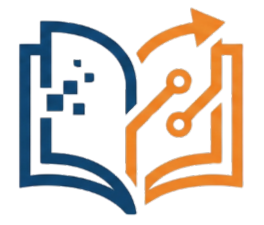Introduction
What is the CpE Laws and Professional Practice Course?
CpE Laws and Professional Practice refer to the body of laws, regulations, standards, and ethical practices that govern the profession of Computer Engineering (CpE). These laws and rules ensure that CpE professionals are competent, ethical, and responsible.
CpE Laws and Professional Practice cover many areas, including professional responsibility, ethical conduct, confidentiality, privacy, intellectual property, liability, and safety. It also includes regulations on designing, developing, and using computer systems and software.
CpE Laws and Professional Practice course is essential because it helps to protect the public and ensure that CpE professionals uphold high standards of professionalism and ethical conduct. It also ensures that CpE professionals know their legal and ethical obligations and are equipped with the knowledge and skills to fulfill them.
What laws in the Philippines are related to computer engineering?
In the Philippines, computer engineering is regulated by various laws and regulations. Some of the fundamental laws that are related to computer engineering in the Philippines include:
- Electronics Engineering Law (Republic Act No. 9292) – This law regulates the practice of electronics engineering in the Philippines, which includes the design, construction, installation, operation, and maintenance of electronic systems, devices, and equipment.
- Data Privacy Act of 2012 (Republic Act No. 10173) – This law regulates the collection, use, storage, and processing of personal information in the Philippines. It requires organizations to protect the privacy of personal information and implement appropriate security measures to prevent data breaches.
- Cybercrime Prevention Act of 2012 (Republic Act No. 10175) – This law criminalizes various forms of cybercrime, including hacking, identity theft, and online fraud. It also provides for the investigation, prosecution, and punishment of cybercrimes.
- Intellectual Property Code of the Philippines (Republic Act No. 8293) – This law governs the protection and enforcement of intellectual property rights in the Philippines, including patents, trademarks, and copyrights.
- Magna Carta for Scientists, Engineers, Researchers, and other S&T Personnel in the Government (Republic Act No. 8439) – This law provides benefits and incentives to scientists, engineers, researchers, and other science and technology personnel working in the government sector.
- E-commerce Law (RA 8792) – The E-commerce Law is a Philippine law that provides legal recognition and protection for electronic transactions, documents, and signatures. The law aims to promote e-commerce in the country by establishing the legal framework for conducting online business, protecting the rights of consumers and service providers, and regulating the use of electronic data messages.
- Optical Media Act Of 2003 (RA 9239) – The Optical Media Act is a Philippine law that regulates the production, distribution, and sale of optical media such as CDs and DVDs. The law aims to prevent piracy and counterfeiting of copyrighted materials by establishing penalties for copyright infringement, mandating the use of copy-protection technologies, and requiring registration and licensing for optical media manufacturers and distributors.
- Department of Information and Communications Technology Act of 2015 (RA 10844) – The Department of Information and Communications Technology Act is a Philippine law that created the Department of Information and Communications Technology (DICT), a government agency responsible for the planning, development, and promotion of the country’s information and communications technology (ICT) sector. The law aims to improve the competitiveness of the Philippines in the global ICT market by fostering Innovation, promoting digital inclusion, and enhancing the country’s ICT infrastructure.
CpE professionals in the Philippines are expected to comply with these laws and regulations, as well as ethical standards set forth by professional organizations such as the allied Institute of Electronics Engineers of the Philippines, Inc. (IECEP) and the Institute of Computer Engineers of the Philippines(ICpEP)
Ethical Considerations for Computer Engineers
Computer engineering professionals are expected to adhere to high ethical standards in their practice, as their work often involves handling sensitive information and designing systems that have a significant impact on society. Some of the key ethical considerations in computer engineering include:
- Privacy and security – Computer engineering professionals must ensure that the systems they design and implement protect the privacy and security of individuals and organizations. They should implement appropriate security measures to prevent unauthorized access and protect against data breaches.
- Intellectual property – Computer engineering professionals must respect intellectual property rights, including patents, trademarks, and copyrights. They should not use or distribute proprietary information without proper authorization.
- Transparency – Computer engineering professionals should be transparent about their methods and practices, including disclosing any potential conflicts of interest or biases that may influence their work.
- Accountability – Computer engineering professionals should be accountable for their actions and the impact of their work. They should take responsibility for any errors or mistakes, and work to rectify them.
- Social responsibility – Computer engineering professionals should be aware of the impact of their work on society and the environment. They should strive to design systems that are beneficial and sustainable, and avoid designing systems that may have negative consequences for society.
- Professionalism – Computer engineering professionals should uphold professional standards and act with integrity and honesty in all aspects of their work.
Adhering to these ethical considerations is essential for computer engineering professionals to maintain public trust and ensure the continued advancement of the field. Professional organizations, such as the IEEE Computer Society and the Association for Computing Machinery (ACM), provide guidelines and codes of ethics for computer engineering professionals to follow.

